ENA - ENA English
Headlines
Ethiopia, Djibouti Reach Agreements on Various Issues of Mutual Interest
Apr 26, 2024 74
Addis Ababa April 26/2024 (ENA) The 16th Joint Ministerial Commission (JMC) of mid-term review between Ethiopia and Djibouti has concluded, with the two countries reaching agreements on various areas of mutual interest. The relationship between Ethiopia and Djibouti is very strong that is built on a number of areas including people to people. After welcoming Djibouti’s President Ismaïl Omar Guellé, Prime Minister Abiy Ahmed once said “the ties between our two nations are historical and broad-based. It is not only neighborly ties but familial.” The two countries have now been working to enhance their relations by building various infrastructures that would help them cement their partnership. The Joint Ministerial Commission meeting is one of the ways in which the countries elevate their ties. The Ethiopian delegation led by the Minister of Transport and Logistics, Alemu Sime participated at the 16th Joint Ministerial Commission mid-term review meeting. The Minister chaired the two day meeting held in Djibouti with his Djibouti counterpart, Hassan Houmed Ibrahim. The meeting focused on the comprehensive cooperation frameworks of the two countries, investment and illegal border trade, illegal human trafficking, transport and logistics sectors, especially the implementation of the construction of the Dekil-Galafi road. They also had a deep discussion about the efforts being made to address the bottlenecks in the port and transit between the two countries and the customs service provision and the responses received. Based on this, technical committees were formed to improve the port and transit services, customs protocol and multimodal agreements that have already been signed between the countries. At the conclusion of the meeting, Ethiopian Minister of Transport and Logistics Alemu Sime said that Ethiopia and Djibouti have a long standing relationship in multifaceted spheres. This two day-meeting was held in a way that reflected this historical friendship. He expressed his confidence that the relevant government institutions from both parties will meet and discuss the agendas that have been discussed and agreed upon during the meeting and will carry out the necessary tasks. He stressed special attention should be paid to logistics and port in working with collaboration. Minister of Infrastructure and Equipment of Djibouti, Hassan Houmed Ibrahim said on his part that the two-day meeting was held in a good spirit stressing the contribution of such forums to strengthen the bilateral relations between Ethiopia and Djibouti. Ethiopia’s long-term aspiration is to realize shared development with its neighbors; as it is vividly demonstrated with its sisterly country Djibouti through infrastructures such as railway, potable water, energy, people-to-people and cultural exchange. Hence, the country is exerting its utmost contribution to enhance mutual development among communities of its neighbors with similar identities by even sharing from its meager resources. Ethiopia is committed to providing its neighbors with infrastructure options with a view to help them expedite their respective development; Djibouti and Ethiopia will benefit from enhanced community and infrastructure connectivity to promote mutual development and prosperity.
Prime Minister Abiy Confers with CEO of Bill and Melinda Gates Foundation
Apr 26, 2024 81
Addis Ababa April 26/2024 (ENA) Prime Minister Abiy Ahmed met Mark Suzman, CEO of the Bill and Melinda Gates Foundation (BMGF), and his team today. The premier posted on social media page: "BMGF’s vital support in agriculture, health, nutrition, inclusive financial systems and other areas is invaluable to Ethiopia's development. We are looking forward to strengthened partnerships ahead and other areas of cooperation."
Ethiopia Working to Secure New Development Bank Membership
Apr 26, 2024 153
Addis Ababa April 26/2024 (ENA) The Ministry of Foreign Affairs disclosed that Ethiopia is working hard to become member of BRICS' New Development Bank. Spokesperson of the Ministry Nebiyu Tedla, gave a weekly press conference on the nation’s diplomatic activities that were carried out over the week. The spokesperson recalled that a delegation led by State Minister of Foreign Affairs, Mesganu Arga participated in the consultation of BRICS member countries held in Moscow, Russia. Nebiyu explained that Ethiopia has joined BRICS, the emerging global bloc to protect its national interests and navigate alternative benefits in the financial and related matters. As part of Ethiopia’s endeavor to maximize its gain from the international organizations like BRICS, he revealed the ongoing efforts being made to become a member of the New Development Bank. On other hand, the spokesperson elaborated Foreign Minister Taye Atske Selassie held discussion with Amina Mohammed, Deputy Secretary General of the United Nations (UN) on ways of strengthening multifaceted partnership and priorities between Ethiopia and the UN. He further mentioned that Ethiopia is preparing to successfully host the preparatory conference of the 4th UN International Conference on financing for development in July 2024. Additionally, Nebiyu birdied the media about Ethio-Slovenia political consultation held in Addis Ababa. The consultation was aimed at evaluating the status of existing relations, consulting on further enhancing the bilateral relations of the two countries and exchanging views on current regional, continental, and global issues of common interest. He added that the Libyan Prime Minister Abdul Hamid Al-Dabaiba's visit to Addis Ababa was successful. The Prime Minister held discussions with Prime Minister Abiy Ahmed to work together on peace and stability, human resource exchange and other areas of cooperation, he pointed out.
Ethiopian, Chinese Academic Institutions Sign MoU to Collaborate
Apr 26, 2024 112
Addis Ababa April 26/2024 (ENA)The African Leadership Excellence Academy (AFLEX) and China's Academy for International Business Officials (AIBO) signed a Memorandum of Understanding (MoU) today. AFLEX President Zadig Abraha and AIBO President Sun Zhonghe signed the agreement. The agreement which is expected to quickly take effect after the signing paves the way for increased collaboration in leadership development and enable AFLEX to become China's training base for Africans. It also establishes a framework for the two institutions to share information, knowledge, and best practices in leadership training. Zadig said on the occasion that the agreement is instrumental in fostering knowledge exchange and experience sharing between the two institutions. We envision AFLEX becoming a key training base for African leaders in China-related fields, Zadig revealled, adding this will have various academic and economic benefits especially for Ethiopia. “This is also another demonstration of the Ethio-China strategic partnership and cooperation that will catalyze overall bilateral relations,” he added. AIBO, also known as the Training Center of the Ministry of Commerce (MOFCOM) of China, holds a unique position. As the only educational institution directly affiliated with China's MOFCOM, AIBO plays a vital role in shaping international trade and economic cooperation initiatives, Zadig noted. AIBO President stressed the MoU's potential to strengthen strategic academic and economic partnerships between Ethiopia and China. The agreement represents a critical step towards collaboration between our leadership institutions, he stated. This partnership between AFLEX and AIBO is expected to provide African leaders with enhanced access to China-focused leadership training programs, fostering a deeper understanding of the economic landscape between the two countries and with Africa. With its focus on leadership excellence, AFLEX is well-positioned to leverage AIBO's expertise and create a bridge for future generations of Ethiopian and African leaders to navigate evolving issues.
Ethiopian National Dialogue Processes Proceeding As Planned
Apr 26, 2024 96
In a statement the National Intelligence and Security Council of Ethiopia issued recently, it emphasized the imperatives of the processes of the National Dialogue and Transitional Justice Policy which the country has embarked on rectifying shortfalls inherited from past history. This article focuses on the highlights of national dialogue. The change of political power in Ethiopia in 2018 ushered in a great deal of democratic space for the people of the country. The incumbent government has been taking various series of measures to build strong and viable institutions vital for the transformation of the democratic system of the country. Right from the outset, the government underlined that aggressive socioeconomic and political transformation was imperative to take Ethiopia into a new heights. In its long history of statehood, Ethiopia lacked the experience of settling political differences, disagreements and conflicts in a legal and peaceful manner through discussions and dialogues, the statement recalled. Accordingly, amendments were made to existing laws and policies that were bottlenecks for the democratic system by engaging independent experts during the first two or three years of office. All these measures were made to expedite the nation building process by creating an enabling environment for the public and stakeholders’ wider engagement in all aspects of the country’s endeavors. The council noted that the country experienced rampant resentments and distrust perpetuated over the past several decades among the various sections of the society coupled with the interests of individuals and groups that operated in the name of political party, fueling different forms of conflict and instability in the country. This is mainly attributed to the weak democratic culture that the country experienced in its history in resolving political disputes, arguments, and conflicts through peaceful talks and dialogues. The political culture in our nation has been shaped by the ambitions of individuals who have taken over positions of authority through coercion and have continued to impose their will by having complete control over everything available to them until they are removed by force. In response to this challenging situation, the country has conducted extensive processes to hold the first ever inclusive national dialogue that involves all segments of the society with a view to resolving centuries old predicaments that the country is facing, heal resentments and wounds caused during the heinous acts of previous political systems. The reformist government has been reiterating its full support and commitment to the successful conduct of the inclusive dialogue that aims at correcting major fault lines paving the way for creating consensus on basic national issues to the 120 million peoples. The incumbent government has demonstrated the emergence of a new political culture through a national election that showed the desires of the people and formed a government that is based on the will of the peoples. Moreover, the government has demonstrated that this nation is common home for the citizenry. To this effect, the government engaged leaders and members of other political parties into the state nomenclature, which is a new political departure in the history of Ethiopia. Towards rectifying rampant mistakes inherited from the past, the government initiated the establishment of an independent National Dialogue Commission with 11 commissioners who have proven scholarly independence, impartiality and enthusiasm to see a peaceful, democratic and prosperous Ethiopia. The commissioners of the National Dialogue, who were appointed to serve their country, are of high caliber and rich experience. The law has empowered them with extensive power to conduct their duties of coordinating and conducting an inclusive national dialogue. They have now charted out extensive outlines on how the inclusive dialogue should be conducted by consulting pertinent stakeholders. Accordingly, the process of identifying candidates, who would participate in the national dialogue in 10 regional states and two city administrations and districts have been completed. Meticulous and painstaking tasks have been accomplished in this regard. It has also engaged communities at all levels. This strategy has considered the public who are the owners of the process as the epicenter of the entire deliberation.The process in the dialogue including the preparation of agendas was not done only from top to bottom but has also initiated idea generation for discussion and agendas were suggested to the higher bodies of the commission It is expected that the commission will commence dialogue in regional levels within few weeks. It is also expected to finalize identification of participants shortly in areas where identification of participants have not yet conducted. Thus far, some 12,294 participants have been identified from 679 districts, that would participate in the process, have already been identified.
Politics
Ethiopia Working to Secure New Development Bank Membership
Apr 26, 2024 153
Addis Ababa April 26/2024 (ENA) The Ministry of Foreign Affairs disclosed that Ethiopia is working hard to become member of BRICS' New Development Bank. Spokesperson of the Ministry Nebiyu Tedla, gave a weekly press conference on the nation’s diplomatic activities that were carried out over the week. The spokesperson recalled that a delegation led by State Minister of Foreign Affairs, Mesganu Arga participated in the consultation of BRICS member countries held in Moscow, Russia. Nebiyu explained that Ethiopia has joined BRICS, the emerging global bloc to protect its national interests and navigate alternative benefits in the financial and related matters. As part of Ethiopia’s endeavor to maximize its gain from the international organizations like BRICS, he revealed the ongoing efforts being made to become a member of the New Development Bank. On other hand, the spokesperson elaborated Foreign Minister Taye Atske Selassie held discussion with Amina Mohammed, Deputy Secretary General of the United Nations (UN) on ways of strengthening multifaceted partnership and priorities between Ethiopia and the UN. He further mentioned that Ethiopia is preparing to successfully host the preparatory conference of the 4th UN International Conference on financing for development in July 2024. Additionally, Nebiyu birdied the media about Ethio-Slovenia political consultation held in Addis Ababa. The consultation was aimed at evaluating the status of existing relations, consulting on further enhancing the bilateral relations of the two countries and exchanging views on current regional, continental, and global issues of common interest. He added that the Libyan Prime Minister Abdul Hamid Al-Dabaiba's visit to Addis Ababa was successful. The Prime Minister held discussions with Prime Minister Abiy Ahmed to work together on peace and stability, human resource exchange and other areas of cooperation, he pointed out.
Ethiopia Reaffirms Principled Position to Address Regional Conflicts Peacefully
Apr 25, 2024 545
Addis Ababa, April 25, 2024 (ENA) Ethiopia’s state minister of Foreign Affairs has reaffirmed his country’s principled-position to address regional conflicts through peaceful means and respecting sovereignty. State Minister of Foreign Affairs Mesganu Arga is participating in the consultation of BRICS deputy foreign ministers on the situation in the Middle East and North Africa. "We have reaffirmed Ethiopia’s principled-position to address conflicts through peaceful means, respecting sovereignty and national ownership," he wrote on X page. Stressing the primacy of diplomacy and dialogue, the state minister called for maximum restraint and de-escalation to avoid the risk of devastating regional conflict with catastrophic global ramifications. He also underscored effective preventive diplomacy should be at the core of engagements to address multiple crises.
Council of Ministers Approves Regulations and Policies
Apr 25, 2024 554
Addis Ababa, April 25, 2024 (ENA) The Council of Ministers has approved regulations and policies, and referred a proclamation to the House of People's Representatives today. The first bill discussed was a proclamation on improving the export tax incentive with the view to increasing foreign currency earning needed for industrial development and investment, according to the Office of the Prime Minister. It also aimed to overcome the limitations seen in encouraging investors engaged in export business and to improve competitiveness by establishing a system that encourages the actors in the sector, it was learned. The council unanimously referred the draft proclamation to the House of People’s Representatives for approval. A draft regulation to determine fees charged for services provided by the Federal Cooperative Work Commission was tabled next. The regulation was prepared with the view to expanding the services provided by the commission, improve the quality of the services, and establish a system that will partially cover the cost of providing services in a manner that takes into account the capabilities of the user community. The draft regulation was approved to be effective from the date of its publication on the Negarit Gazette. A draft policy on health policy was also discussed by the council. Recall that the existing health policy remained unchanged for the past three decades. Therefore, it has become imperative to improve the policy due to the significant growth of the population, increase in communicable and non-communicable diseases, changes occurring in health at the national and international levels. Moreover, the sector has been facing problems in terms of providing quality and equitable services. Providing a health policy compatible with the social and economic development of the country is also crucial. The draft health policy was approved by the council to become effective from the date of its approval. Finally, the council discussed the draft agriculture and rural development policy. The agricultural policy that is in place does not keep up with the growing production and productivity demands of the country. It has, therefore, become necessary to change the practices that hinder the development of the agricultural sector and the need for a policy that is compatible with the multi-sectoral economic system that the country follows. The draft policy presented to the council is expected to help increase agricultural production and productivity and bring about rural transformation. The council approved the draft agriculture and rural development policy to be effective from the date of its approval.
Libyan PM Lays Wreath at Adwa Victory Memorial in Addis Ababa
Apr 25, 2024 583
Addis Ababa, April 25, 2024 (ENA) Prime Minister of the State of Libya Abdul Hamid Al-Dabaiba who is in Ethiopia for an official working visit, laid a wreath at the newly built Adwa Victory Memorial in Addis Ababa.During the occasion, Libya’s prime minister expressed pleasure over the consecration of Adwa Victory Memorial, which is the pride of all Africans, according to Addis Ababa City Administration Communication Bureau. The Adwa Victory Memorial commemorates the historic Battle of Adwa, which took place on 1st March 1896 marking Ethiopia's victory over Italian forces.
PM Abiy Holds Discussions with His Libyan Counterpart
Apr 25, 2024 779
Addis Ababa, April 25, 2024 (ENA) Prime Minister Abiy Ahmed held discussions with his Libyan counterpart Abdul Hamid Al-Dabaiba regarding regional peace and stability, economic cooperation, workforce exchange, and other areas of mutual interest. “I am pleased to welcome Prime Minister Abdul Hamid Al-Dabaiba of the State of Libya. During our meeting, we engaged in discussions regarding regional peace and stability, economic cooperation, workforce exchange, and other areas of mutual interest,” Prime Minister Abiy shared on social media page.
BRICS Would Provide Opportunity to CSOs for Having Critical Engagement: Authority
Apr 25, 2024 594
Addis Ababa, April 25, 2024 (ENA) The BRICS bloc would bring about immense opportunity to the engagement of Civil Society Organizations (CSOs) from member countries and foster their capacities, according to Ethiopia’s Authority for Civil Society Organizations. The authority added that in addition to enhancing civic engagement, influencing policy and decision-making capacities of civil society organizations, The BRICS alliance is critical that can create an opportunity to CSOs of the member countries through exchange of experience and financing. Ethiopia’s Authority for Civil Society Organizations held discussions with Russia’s civil society experts and various civil associations of the BRICS alliance. Deputy Director-General of Authority for Civil Society Organizations, Fasika Mola said the Ethiopian government has given special attention to civil society organizations to create an enabling environment and engage them freely as part of the ongoing far-reaching reforms. Ethiopia has recently made political reform by significantly revising various laws and proclamations which stifled the free engagement of civic society. Recall Ethiopia was criticized for clamping down democratic initiatives and actions, however, the country has been experiencing a renewed initiative for political reform and better civil society engagement over the past years. As a result of the reform, a favorable environment has been created for civil society organizations that would help them play a significant role in the country’s democratization process and overall national development endeavors. Since Ethiopia is part of the BRICS (Brazil, Russia, India, China and South Africa) group of emerging economies, Fasika noted that the East African nation will have an opportunity to ensure its benefits globally and to strengthen civil society organizations. The deputy director-general further explained that Ethiopia's relationship with Russia and other BRICS member countries is imperative for its civil society organizations in order to exchange experiences and maximize their financial capacity.
PM Al-Dabaiba of Libya Arrives in Addis Ababa
Apr 24, 2024 738
Addis Ababa, April 24, 2024 (ENA) Prime Minister of the State of Libya Abdul Hamid Al-Dabaiba, arrived in Addis Ababa tonight to pay an official working visit to Ethiopia. Upon arrival at the Addis Ababa Bole International Airport, he was warmly received by the Minister of Foreign Affairs, Ambassador Taye Atskeselassie. The Prime Minister is expected to consult with Ethiopian senior officials on bilateral, regional and international issues of mutual interest.
Nat'l Dialogue, Transitional Justice Instrumental To Rectify Ethiopia's Historical Shortfalls
Apr 24, 2024 868
Addis Ababa, April 24/2024 (ENA) Ethiopia has put in place a National Dialogue Commission and Transitional Justice Policy that would allow the country to rectify its historical shortfalls, the National Security Council said in a statement it issued today. The National Security Council issued a statement on the current national security of the county. The statement said the challenges that Ethiopia is facing cannot be resolved only through corrective measures but it requires efforts to heal wounds which the country inherited from history. We have therefore put in place three pathways that would enable us to rectify our historical shortfalls through resolving past political challenges through inclusive national dialogue, implementation of transitional justice and upholding peaceful political avenues, the statement underscored. Peaceful political transition is not an end by itself but a means to ensure other overarching political goals, the council noted. Pursuant to the objective reality in Ethiopia, a government that assumes political power by winning elections should not just make decisions on overarching political issues, it said, adding there are other significant and important issues that require inclusive engagement with all stakeholders. Stating the commissioners of the National Dialogue, who were appointed to serve in the institution, are of high caliber and rich experience, the statement indicated the law has empowered them with extensive power to conduct their duties of coordinating and conducting an inclusive national dialogue. The commissioners have now charted out extensive outlines on how the inclusive dialogue should be conducted by consulting with pertinent stakeholders, the council added. The process of identifying candidates, who would participate in the national dialogue, has been conducted in 10 regional states and two city administrations where some 12,294 participants have been identified from 679 districts, it said. According to the statement, the commission is expected to commence dialogue on regional levels within few weeks. The implementation of transitional justice which incorporated international best practices, has also been a viable strategy to break the dichotomy between the transgressors and the victims in Ethiopia, it said The council further noted that over the past several historical incidents, various transgressions, heinous activities and violation of basic human rights have been conducted in the country. “Those who have hitherto assumed political power condemns and punishes others by shifting the blame on others it considered as transgressors. Such approach will never promote the prevalence of justice. It would only produce regrets, and escalation of revenge. This is the major reason why a vicious circle of the desire for vengeance, revenge and unforgiving have prevailed in the country” the statement elaborated. The Pretoria Peace Agreement signifies a mature and resolute decision to prevent future generations from inheriting a legacy of winners and losers characterized by animosity, the National Security Council said.
Politics
Ethiopia Working to Secure New Development Bank Membership
Apr 26, 2024 153
Addis Ababa April 26/2024 (ENA) The Ministry of Foreign Affairs disclosed that Ethiopia is working hard to become member of BRICS' New Development Bank. Spokesperson of the Ministry Nebiyu Tedla, gave a weekly press conference on the nation’s diplomatic activities that were carried out over the week. The spokesperson recalled that a delegation led by State Minister of Foreign Affairs, Mesganu Arga participated in the consultation of BRICS member countries held in Moscow, Russia. Nebiyu explained that Ethiopia has joined BRICS, the emerging global bloc to protect its national interests and navigate alternative benefits in the financial and related matters. As part of Ethiopia’s endeavor to maximize its gain from the international organizations like BRICS, he revealed the ongoing efforts being made to become a member of the New Development Bank. On other hand, the spokesperson elaborated Foreign Minister Taye Atske Selassie held discussion with Amina Mohammed, Deputy Secretary General of the United Nations (UN) on ways of strengthening multifaceted partnership and priorities between Ethiopia and the UN. He further mentioned that Ethiopia is preparing to successfully host the preparatory conference of the 4th UN International Conference on financing for development in July 2024. Additionally, Nebiyu birdied the media about Ethio-Slovenia political consultation held in Addis Ababa. The consultation was aimed at evaluating the status of existing relations, consulting on further enhancing the bilateral relations of the two countries and exchanging views on current regional, continental, and global issues of common interest. He added that the Libyan Prime Minister Abdul Hamid Al-Dabaiba's visit to Addis Ababa was successful. The Prime Minister held discussions with Prime Minister Abiy Ahmed to work together on peace and stability, human resource exchange and other areas of cooperation, he pointed out.
Ethiopia Reaffirms Principled Position to Address Regional Conflicts Peacefully
Apr 25, 2024 545
Addis Ababa, April 25, 2024 (ENA) Ethiopia’s state minister of Foreign Affairs has reaffirmed his country’s principled-position to address regional conflicts through peaceful means and respecting sovereignty. State Minister of Foreign Affairs Mesganu Arga is participating in the consultation of BRICS deputy foreign ministers on the situation in the Middle East and North Africa. "We have reaffirmed Ethiopia’s principled-position to address conflicts through peaceful means, respecting sovereignty and national ownership," he wrote on X page. Stressing the primacy of diplomacy and dialogue, the state minister called for maximum restraint and de-escalation to avoid the risk of devastating regional conflict with catastrophic global ramifications. He also underscored effective preventive diplomacy should be at the core of engagements to address multiple crises.
Council of Ministers Approves Regulations and Policies
Apr 25, 2024 554
Addis Ababa, April 25, 2024 (ENA) The Council of Ministers has approved regulations and policies, and referred a proclamation to the House of People's Representatives today. The first bill discussed was a proclamation on improving the export tax incentive with the view to increasing foreign currency earning needed for industrial development and investment, according to the Office of the Prime Minister. It also aimed to overcome the limitations seen in encouraging investors engaged in export business and to improve competitiveness by establishing a system that encourages the actors in the sector, it was learned. The council unanimously referred the draft proclamation to the House of People’s Representatives for approval. A draft regulation to determine fees charged for services provided by the Federal Cooperative Work Commission was tabled next. The regulation was prepared with the view to expanding the services provided by the commission, improve the quality of the services, and establish a system that will partially cover the cost of providing services in a manner that takes into account the capabilities of the user community. The draft regulation was approved to be effective from the date of its publication on the Negarit Gazette. A draft policy on health policy was also discussed by the council. Recall that the existing health policy remained unchanged for the past three decades. Therefore, it has become imperative to improve the policy due to the significant growth of the population, increase in communicable and non-communicable diseases, changes occurring in health at the national and international levels. Moreover, the sector has been facing problems in terms of providing quality and equitable services. Providing a health policy compatible with the social and economic development of the country is also crucial. The draft health policy was approved by the council to become effective from the date of its approval. Finally, the council discussed the draft agriculture and rural development policy. The agricultural policy that is in place does not keep up with the growing production and productivity demands of the country. It has, therefore, become necessary to change the practices that hinder the development of the agricultural sector and the need for a policy that is compatible with the multi-sectoral economic system that the country follows. The draft policy presented to the council is expected to help increase agricultural production and productivity and bring about rural transformation. The council approved the draft agriculture and rural development policy to be effective from the date of its approval.
Libyan PM Lays Wreath at Adwa Victory Memorial in Addis Ababa
Apr 25, 2024 583
Addis Ababa, April 25, 2024 (ENA) Prime Minister of the State of Libya Abdul Hamid Al-Dabaiba who is in Ethiopia for an official working visit, laid a wreath at the newly built Adwa Victory Memorial in Addis Ababa.During the occasion, Libya’s prime minister expressed pleasure over the consecration of Adwa Victory Memorial, which is the pride of all Africans, according to Addis Ababa City Administration Communication Bureau. The Adwa Victory Memorial commemorates the historic Battle of Adwa, which took place on 1st March 1896 marking Ethiopia's victory over Italian forces.
PM Abiy Holds Discussions with His Libyan Counterpart
Apr 25, 2024 779
Addis Ababa, April 25, 2024 (ENA) Prime Minister Abiy Ahmed held discussions with his Libyan counterpart Abdul Hamid Al-Dabaiba regarding regional peace and stability, economic cooperation, workforce exchange, and other areas of mutual interest. “I am pleased to welcome Prime Minister Abdul Hamid Al-Dabaiba of the State of Libya. During our meeting, we engaged in discussions regarding regional peace and stability, economic cooperation, workforce exchange, and other areas of mutual interest,” Prime Minister Abiy shared on social media page.
BRICS Would Provide Opportunity to CSOs for Having Critical Engagement: Authority
Apr 25, 2024 594
Addis Ababa, April 25, 2024 (ENA) The BRICS bloc would bring about immense opportunity to the engagement of Civil Society Organizations (CSOs) from member countries and foster their capacities, according to Ethiopia’s Authority for Civil Society Organizations. The authority added that in addition to enhancing civic engagement, influencing policy and decision-making capacities of civil society organizations, The BRICS alliance is critical that can create an opportunity to CSOs of the member countries through exchange of experience and financing. Ethiopia’s Authority for Civil Society Organizations held discussions with Russia’s civil society experts and various civil associations of the BRICS alliance. Deputy Director-General of Authority for Civil Society Organizations, Fasika Mola said the Ethiopian government has given special attention to civil society organizations to create an enabling environment and engage them freely as part of the ongoing far-reaching reforms. Ethiopia has recently made political reform by significantly revising various laws and proclamations which stifled the free engagement of civic society. Recall Ethiopia was criticized for clamping down democratic initiatives and actions, however, the country has been experiencing a renewed initiative for political reform and better civil society engagement over the past years. As a result of the reform, a favorable environment has been created for civil society organizations that would help them play a significant role in the country’s democratization process and overall national development endeavors. Since Ethiopia is part of the BRICS (Brazil, Russia, India, China and South Africa) group of emerging economies, Fasika noted that the East African nation will have an opportunity to ensure its benefits globally and to strengthen civil society organizations. The deputy director-general further explained that Ethiopia's relationship with Russia and other BRICS member countries is imperative for its civil society organizations in order to exchange experiences and maximize their financial capacity.
PM Al-Dabaiba of Libya Arrives in Addis Ababa
Apr 24, 2024 738
Addis Ababa, April 24, 2024 (ENA) Prime Minister of the State of Libya Abdul Hamid Al-Dabaiba, arrived in Addis Ababa tonight to pay an official working visit to Ethiopia. Upon arrival at the Addis Ababa Bole International Airport, he was warmly received by the Minister of Foreign Affairs, Ambassador Taye Atskeselassie. The Prime Minister is expected to consult with Ethiopian senior officials on bilateral, regional and international issues of mutual interest.
Nat'l Dialogue, Transitional Justice Instrumental To Rectify Ethiopia's Historical Shortfalls
Apr 24, 2024 868
Addis Ababa, April 24/2024 (ENA) Ethiopia has put in place a National Dialogue Commission and Transitional Justice Policy that would allow the country to rectify its historical shortfalls, the National Security Council said in a statement it issued today. The National Security Council issued a statement on the current national security of the county. The statement said the challenges that Ethiopia is facing cannot be resolved only through corrective measures but it requires efforts to heal wounds which the country inherited from history. We have therefore put in place three pathways that would enable us to rectify our historical shortfalls through resolving past political challenges through inclusive national dialogue, implementation of transitional justice and upholding peaceful political avenues, the statement underscored. Peaceful political transition is not an end by itself but a means to ensure other overarching political goals, the council noted. Pursuant to the objective reality in Ethiopia, a government that assumes political power by winning elections should not just make decisions on overarching political issues, it said, adding there are other significant and important issues that require inclusive engagement with all stakeholders. Stating the commissioners of the National Dialogue, who were appointed to serve in the institution, are of high caliber and rich experience, the statement indicated the law has empowered them with extensive power to conduct their duties of coordinating and conducting an inclusive national dialogue. The commissioners have now charted out extensive outlines on how the inclusive dialogue should be conducted by consulting with pertinent stakeholders, the council added. The process of identifying candidates, who would participate in the national dialogue, has been conducted in 10 regional states and two city administrations where some 12,294 participants have been identified from 679 districts, it said. According to the statement, the commission is expected to commence dialogue on regional levels within few weeks. The implementation of transitional justice which incorporated international best practices, has also been a viable strategy to break the dichotomy between the transgressors and the victims in Ethiopia, it said The council further noted that over the past several historical incidents, various transgressions, heinous activities and violation of basic human rights have been conducted in the country. “Those who have hitherto assumed political power condemns and punishes others by shifting the blame on others it considered as transgressors. Such approach will never promote the prevalence of justice. It would only produce regrets, and escalation of revenge. This is the major reason why a vicious circle of the desire for vengeance, revenge and unforgiving have prevailed in the country” the statement elaborated. The Pretoria Peace Agreement signifies a mature and resolute decision to prevent future generations from inheriting a legacy of winners and losers characterized by animosity, the National Security Council said.
Social
Kalazar Drug Enters Phase Two Clinical Trials in Ethiopia
Apr 23, 2024 998
Addis Ababa, April 23/2024 (ENA) The Kalazar treatment drug has reached an exciting milestone as it enters the crucial phase two clinical trials in Ethiopia. This development brings renewed hope for the effective and patient-friendly treatment of Kalazar, also known as visceral leishmaniasis, a disease that poses a significant health challenge in Eastern Africa. Director of the Kalazar Disease Research and Treatment Center at the University of Gondar, Dr. Samuel Teshome highlighted the significance of this progress and the opportunity it presents for developing a safe and efficient cure for Kalazar in Ethiopia for new cases of the disease has been increasing in the country. According to him, Kalazar is a parasitic disease that ranks as the second deadliest globally, following malaria. It is characterized by symptoms such as persistent fever, weight loss, and enlargement of the spleen and liver. Without proper treatment, the disease can be fatal, he said. It is primarily transmitted through the bite of infected sandflies and is endemic in 80 countries, particularly in Eastern Africa, South Asia, and Latin America. Dr. Samuel said Eastern Africa currently bears the highest burden of Kalazar cases. Alarmingly, children under the age of 15 accounts for half of the 50,000 to 90,000 new cases reported each year. The research has been carried out in collaboration with researchers and laboratory institutions of various countries, he pointed out. The current treatment for Kalazar in Ethiopia involves a 17-day regimen of painful daily injections administered at hospitals, Dr. Samuel said. However, the newly developed drug, LXE408, offers a promising alternative. According to Dr. Samuel, LXE408 is administered orally in the form of pills, which is expected to provide improved efficacy and safety compared to the existing treatment options. This patient-friendly approach has the potential to revolutionize the way Kalazar is treated, offering a more convenient and accessible solution. The drug is expected to have high level of curability with very little side effects which will be available easily in health centers in villages. Research and Treatment Center (LRTC), co-Principal Investigator of the clinical trial at the Leishmaniasis at the University of Gondar Dr. Eleni Ayele, emphasized the significance of conducting the phase two clinical trial in an endemic country like Ethiopia. She highlighted the limitations of the current treatment options, which can be potentially toxic, require injections and cold-chain supplies, and often necessitate patients to travel long distances and stay in hospitals for extended periods. The goal of the research is to develop an oral treatment that is both efficacious and less toxic, allowing patients to receive care at primary healthcare facilities near their homes, she said. This approach could significantly reduce morbidity and transmission rates associated with Kalazar, bringing the treatment closer to the affected communities, the researcher added. The Director of the Leishmaniasis program at the Drugs for Neglected Diseases initiative (DNDi), Dr. Fabiana Alves also emphasized that the clinical trial for LXE408 represents a significant step towards delivering better, patient-friendly, and effective medicines that are accessible to all those in need. The clinical trial in Ethiopia is financially supported by the European and Developing Countries Clinical Trials Partnership (EDCPT) as part of the VL-INNO project, which involves a diverse range of partners. This collaboration ensures that the research is well-resourced and supported by various stakeholders, further enhancing its potential impact.
Gov’t Reaffirms Commitment to Implementing Transitional Justice Policy
Apr 19, 2024 1620
Addis Ababa, April 19/2024(ENA) The Government of Ethiopia is committed to implementing the Transitional Justice Policy which is essential to ensure lasting peace in the country, House of People's Representatives (HPR) Chief Government Whip Tesfaye Beljige said. The chief government whip gave the assurance at a consultative meeting held for parliamentarians and high government officials to discuss the Transitional Justice Policy approved this week by the Council of Ministers. Addressing the meeting, Tesfaye Beljige said the experience of various countries show that appropriately implementing transitional justice is crucial to sustainable resolution of complex crises. The government has, therefore, shown unwavering commitment for the realization of transitional justice starting from taking the initiative in preparing the document, he added. Tesfaye elaborated that transitional justice is an important tool to solve deep rooted problems and the government has a clear position to bring lasting peace and stability in Ethiopia by resolving disputes arising from the past through forgiveness. For him, the role of all stakeholders is essential to realize the historic national dialogue and the Transitional Justice Policy. House of People's Representatives Speaker, Tagesse Chaffo said on the occasion that implementing the policy is essential for a better Ethiopia. Designing and implementing a participatory transitional justice based on the nation's political and social circumstances with a clear policy framework is vital, he underscored. The speaker, who noted that the Ministry of Justice has a huge role for monitoring and coordinating the implementation of the policy and law documents, affirmed that the HPR will continue its unwavering support to the implementation of transitional justice. Recall that Ethiopia has been making various attempts to resolve human rights violations, civil conflicts, unwarranted narratives and abuses that had occurred and continue in different eras with a wide range of victims and perpetrators.
Field Marshal Birhanu Extends Condolences over Death of Kenya's Defense Chief
Apr 19, 2024 1545
Addis Ababa, April 19/2024(ENA)-Chief of General Staff of the Ethiopian National Defense Force (ENDF), Field Marshal Birhanu Jula, has expressed his condolences over the death of General Francis Omondi Ogolla, Kenya's Chief of Defense Force. In his message of condolences on behalf of the ENDF and himself, Field Marshal Birhanu expressed his compassion to the bereaved families and friends of the top military officers who lost their lives in a helicopter crash. He stated that General Ogolla has hugely contributed to peace and security of his country as well as the region. Field Marshal Birhanu affirmed that the ENDF will stand by Kenyans at this difficult time. Kenya began today a three-day mourning after its defense chief and nine other senior military officers were killed in a helicopter crash. The helicopter was carrying 11 people, including the Kenyan Chief of Defense Force Gen. Ogolla, when it crashed on Thursday and caught fire in a remote area near the border with Uganda, killing nine people on board.
Chinese Language Learning Gaining Momentum in Africa, Says UNECA Director
Apr 18, 2024 1858
Addis Ababa April 18/2024 (ENA) There is a growing interest and promising future for learning the Chinese language in Africa, according to UNECA Africa Center for Statistics Director Oliver Chinganya. Addressing the celebration of the Chinese Language Day at the UNECA (United Nations Economic for Africa) in Addis Ababa today, the director noted that among the numerous reasons why people are increasingly interested in learning Chinese is its being one of the six official working languages of the United Nations. The growing ease of travel to China, expansion of Confucius Institutes in the continent, and the vast economic opportunities that come with Chinese language proficiency are the other reasons, Chinganya added. According to him, there were 62 Confucius institutes in 45 African countries in 2021. The number of students enrolled in the Chinese language programs also surpassed the number of students in many European countries. The director claimed that the number of people learning Chinese worldwide is nearing 40 million, and is projected to reach 100 million by 2026. Chinganya finally called for a stronger partnership between UNECA and China's Mission to the African Union, along with other multilateral partners. Head of China's Mission to the African Union, Hu Changchun, echoed the importance of learning Chinese to understand China. Emphasizing the worldwide surge in demand for Chinese language proficiency, he reaffirmed his government's commitment to addressing global needs such as peace, development, and cooperation.
Economy
Ethiopia, Djibouti Reach Agreements on Various Issues of Mutual Interest
Apr 26, 2024 74
Addis Ababa April 26/2024 (ENA) The 16th Joint Ministerial Commission (JMC) of mid-term review between Ethiopia and Djibouti has concluded, with the two countries reaching agreements on various areas of mutual interest. The relationship between Ethiopia and Djibouti is very strong that is built on a number of areas including people to people. After welcoming Djibouti’s President Ismaïl Omar Guellé, Prime Minister Abiy Ahmed once said “the ties between our two nations are historical and broad-based. It is not only neighborly ties but familial.” The two countries have now been working to enhance their relations by building various infrastructures that would help them cement their partnership. The Joint Ministerial Commission meeting is one of the ways in which the countries elevate their ties. The Ethiopian delegation led by the Minister of Transport and Logistics, Alemu Sime participated at the 16th Joint Ministerial Commission mid-term review meeting. The Minister chaired the two day meeting held in Djibouti with his Djibouti counterpart, Hassan Houmed Ibrahim. The meeting focused on the comprehensive cooperation frameworks of the two countries, investment and illegal border trade, illegal human trafficking, transport and logistics sectors, especially the implementation of the construction of the Dekil-Galafi road. They also had a deep discussion about the efforts being made to address the bottlenecks in the port and transit between the two countries and the customs service provision and the responses received. Based on this, technical committees were formed to improve the port and transit services, customs protocol and multimodal agreements that have already been signed between the countries. At the conclusion of the meeting, Ethiopian Minister of Transport and Logistics Alemu Sime said that Ethiopia and Djibouti have a long standing relationship in multifaceted spheres. This two day-meeting was held in a way that reflected this historical friendship. He expressed his confidence that the relevant government institutions from both parties will meet and discuss the agendas that have been discussed and agreed upon during the meeting and will carry out the necessary tasks. He stressed special attention should be paid to logistics and port in working with collaboration. Minister of Infrastructure and Equipment of Djibouti, Hassan Houmed Ibrahim said on his part that the two-day meeting was held in a good spirit stressing the contribution of such forums to strengthen the bilateral relations between Ethiopia and Djibouti. Ethiopia’s long-term aspiration is to realize shared development with its neighbors; as it is vividly demonstrated with its sisterly country Djibouti through infrastructures such as railway, potable water, energy, people-to-people and cultural exchange. Hence, the country is exerting its utmost contribution to enhance mutual development among communities of its neighbors with similar identities by even sharing from its meager resources. Ethiopia is committed to providing its neighbors with infrastructure options with a view to help them expedite their respective development; Djibouti and Ethiopia will benefit from enhanced community and infrastructure connectivity to promote mutual development and prosperity.
Prime Minister Abiy Confers with CEO of Bill and Melinda Gates Foundation
Apr 26, 2024 81
Addis Ababa April 26/2024 (ENA) Prime Minister Abiy Ahmed met Mark Suzman, CEO of the Bill and Melinda Gates Foundation (BMGF), and his team today. The premier posted on social media page: "BMGF’s vital support in agriculture, health, nutrition, inclusive financial systems and other areas is invaluable to Ethiopia's development. We are looking forward to strengthened partnerships ahead and other areas of cooperation."
Ethiopian, Chinese Academic Institutions Sign MoU to Collaborate
Apr 26, 2024 112
Addis Ababa April 26/2024 (ENA)The African Leadership Excellence Academy (AFLEX) and China's Academy for International Business Officials (AIBO) signed a Memorandum of Understanding (MoU) today. AFLEX President Zadig Abraha and AIBO President Sun Zhonghe signed the agreement. The agreement which is expected to quickly take effect after the signing paves the way for increased collaboration in leadership development and enable AFLEX to become China's training base for Africans. It also establishes a framework for the two institutions to share information, knowledge, and best practices in leadership training. Zadig said on the occasion that the agreement is instrumental in fostering knowledge exchange and experience sharing between the two institutions. We envision AFLEX becoming a key training base for African leaders in China-related fields, Zadig revealled, adding this will have various academic and economic benefits especially for Ethiopia. “This is also another demonstration of the Ethio-China strategic partnership and cooperation that will catalyze overall bilateral relations,” he added. AIBO, also known as the Training Center of the Ministry of Commerce (MOFCOM) of China, holds a unique position. As the only educational institution directly affiliated with China's MOFCOM, AIBO plays a vital role in shaping international trade and economic cooperation initiatives, Zadig noted. AIBO President stressed the MoU's potential to strengthen strategic academic and economic partnerships between Ethiopia and China. The agreement represents a critical step towards collaboration between our leadership institutions, he stated. This partnership between AFLEX and AIBO is expected to provide African leaders with enhanced access to China-focused leadership training programs, fostering a deeper understanding of the economic landscape between the two countries and with Africa. With its focus on leadership excellence, AFLEX is well-positioned to leverage AIBO's expertise and create a bridge for future generations of Ethiopian and African leaders to navigate evolving issues.
Ethiopia, UK Agree to Boost Bilateral Relations and Expand Cooperation in Economic Reform
Apr 26, 2024 185
Addis Ababa, April 26/2024 (ENA) Ethiopia and the United Kingdom (UK) have agreed to boost bilateral relations and expand cooperation in economic reform, basic services and productive safety net. The State Minister of Finance, Semereta Sewasew, discussed with a delegation led by Simon Mustard, UK - Foreign, Commonwealth Development Office (FCDO) Director for Africa. The discussion between the two parties was on mutual interests at bilateral, regional, and international levels, according to the Ministry of Finance. They discussed assistance, humanitarian space and basic service delivery in Ethiopia, it was learned. The director pointed out that FCDO has substantially raised the volume of assistance and would like to work in collaboration with the Ethiopian government to ensure efficient and smooth delivery of assistance for beneficiaries. The delegation also reaffirmed their commitment to the ongoing economic reform program and promised to avail both human and financial resources for the implementation of the program. Emphasis was also placed on the vital role of the private sector in driving prosperity and job creation, thereby enhancing exports and boosting domestic revenue. In conclusion, the state minister expressed gratitude to the UK government for its support during the pledging event in Geneva and reiterated the importance of enhanced financial aid and continuous consultation on smooth delivery.
Technology
Ethiopian Assn. of Startup Ecosystem Appreciates Priority Given by Gov't to Startup Ecosystem
Apr 24, 2024 681
Addis Ababa, April 24/2024 (ENA) The priority given to Ethiopia’s startup ecosystem and the changes in terms of policy and investment are commendable, according to the Ethiopian Association of Startup Ecosystem (EASE). In an exclusive interview with ENA, Ethiopian Association of Startup Ecosystem (EASE) General Manager Nebiyou Yirga said the startup ecosystem used to be a bit fragmented and nobody shared any kind of information. “What we are now demonstrating is that the ecosystem is not built by one person. It has to be built by a lot of people and there is no single owner of the ecosystem. It is owned by everybody.” Finding the gaps in the ecosystem and solving problems with all the ecosystem players, parties and the government are essential steps, he added. For the general manager, considering all the innovations and startup ecosystems in other continents “we are late, but we have started at last; and it is good.” According to him, the startuppers have now learned that there are going to be some changes in the ecosystem; and they are optimistic to see the good effects of the changes that are being promoted. In addition to praising the very good start in the ecosystem, Nebiyou hopes to see the effect of the policy and the kind of investments in the ecosystem. The Ministry of Innovation and Technology reaffirmed recently that the government is making a concerted effort to foster a startup-friendly atmosphere in the country by offering essential resources, including funding, workspace, and technical assistance. Efforts will be intensified to help startups enter the market as their contribution to job creation, productivity in agriculture, industry, and tourism, among others, is crucial, it noted. In a recent post on X, Prime Minister Abiy Ahmed also wrote that “Startup Ethiopia aims to cultivate an environment conducive to youth entrepreneurship, fostering innovative problem-solving businesses. Recognizing the youth as the nation’s engine brimming with innovative ideas, policy support for the ecosystem is vital to translate these ideas into reality.” Recall that a three-week “Startup Ethiopia Exhibition” opened at the Science Museum in Addis Ababa on April 4, 2024 with the goal of fostering business connections, providing resources, and showcasing the innovation of participants in the ecosystem. The exhibition was a national event hosting over 900 participating startups engaged in various fields, including information technology, agriculture, health, education, industry and finance.
IRENA Hails Ethiopia's Regional Renewable Energy Integration
Apr 21, 2024 1249
Addis Ababa, April 21/2024(ENA)-The International Renewable Energy Agency (IRENA) Director General appreciated Ethiopia's Regional Renewable Energy Integration. The fourteenth session of the Assembly of the International Renewable Energy Agency (IRENA) held in Abu Dhabi, United Arab Emirates. The Ethiopian delegation, led by Minister of Water and Energy Habtamu Etefa and Ethiopian Ambassador to the United Arab Emirates Omar Hussien, participated at the assembly. The final day of the Assembly focused on the topics of bankable renewable energy projects, Africa's energy transition, the important roles of geothermal energy and green hydrogen, as well as the policy and skills needed to accelerate the energy transition. Members also continued to convene to push collaboration and cooperation forward towards the tripled renewables target by 2030. During the closing session of IRENA, Minister of Water and Energy Habtamu said, "We have also now prepared private-public partnership models that will increase the confidence of the private sector on actions taken by Ethiopia to increase private sector investment to foster bankability to expand solar, wind, and geothermal projects." He highlighted Ethiopia's energy strategy, which exemplifies the commitment of Ethiopian Prime Minister Abiy Ahmed to harnessing renewable energy sources. "We are close to achieving our target of 100 percent renewable energy by 2030 to propel our economy forward and achieve energy independence." The Ethiopian government is committed to regional integration by sharing its energy with neighboring countries like Kenya, Djibouti, and others. This strategy is not only used to ensure our economy but also to secure regional peace and security, he concluded. IRENA director general Raul Alfaro Pelico, Director of Knowledge, Policy, and Finance Center (KPFC) at IRENA, closed the plenary session, reflecting on the need for a new paradigm on bankability and project impact to de-risk investment, increase public-private partnerships, and accelerate collaborative efforts to catalyze a global shift like what the Ethiopian government does. Raul noted that the energy transition is also expected to increase energy sector employment, with renewable energy jobs potentially tripling from the current 13.7 million to 40 million by 2050. Investments in other energy transition-related technologies could result in a substantial increase in job opportunities. Raul also made note of the possible misalignment of future job opportunities owing to developmental and geographical disparities. He called for just transition policies like tax credits, subsidies, grants, and public research and development to ensure that the misalignments do not become barriers to the renewable energy transition. In the session, the participants explore the African Renewable Power Alliance (APRA) and its strategy for boosting renewable energy in Africa through international collaboration.
Space Science and Geospatial Institute to Share High-Resolution Satellite Data Freely
Apr 17, 2024 2165
Addis Ababa, April 17/2024 (ENA) The Ethiopian Space Science and Geospatial Institute (SSGI) announced that it has made high-resolution satellite data freely available to stakeholders in the country. The data was collected through a collaborative project signed with China's Ministry of Natural Resources in April, 2023. The institute held a national workshop to popularize high-resolution data collected from the Chinese Land Satellite Remote Sensing Application Centre (LASAC) and the National Spatial Data Infrastructure (NSDI) today. Space Science and Geospatial Institute Deputy Director-General Bethelhem Nigussie said on the occasion that the 5-year LASAC project has resulted in a detailed satellite imagery covering the entire country. According to her, the institute is now ready to exchange the data with stakeholders for free based on provisional agreements to be reached soon. The data can be used for various purposes, including natural resources, agriculture and livestock, it was learned. In particular, the data will be helpful in managing natural disasters like floods and droughts, which are common in Ethiopia. Challenges such as data accessibility, lack of skilled personnel, and infrastructure limitations were identified during a workshop held by SSGI to discuss using the data. Meanwhile, SSGI has signed a Memorandum of Understanding with the Ethiopian Statistical Service to facilitate data and information sharing. Space Science and Geospatial Institute Director-General Abdisa Yilma and Ethiopian Statistical Service Director-General Beker Shale signed the agreement.
Wingu Africa Achieves Tier III Certification for Data Center
Apr 16, 2024 2699
Addis Ababa, April 16/2024 (ENA) -Wingu Africa Group Limited, a leading data center provider in Ethiopia, has achieved Tier III certification from the Uptime Institute for its facility in the ICT Park, Addis Ababa. Wingu Africa has successfully met the stringent requirements, ensuring the facility's ability to withstand maintenance activities and unexpected failures without impacting critical IT functions, it was learned. Uptime Institute is a Global Digital Infrastructure Authority, headquartered in New York, NY, with main offices in London, São Paulo, Dubai, Riyadh, Singapore, and Taipei. This prestigious certification, awarded by the institute, affirms the data center's adherence to stringent industry standards for concurrent maintainability and fault tolerance. State Minister of Innovation and Technology, Yeshurun Alemayehu, hailed the certification as a remarkable feat for Ethiopia, lauding the certification as a significant milestone in Ethiopia's digital transformation journey. He emphasized the crucial role of data centers in supporting the country's digital transformation and expressed the government's commitment to assisting investors in this sector. This significant achievement further solidifies Wingu Africa's commitment to delivering secure and resilient data infrastructure, while positioning Ethiopia as a dynamic hub for innovation and development, the company announced. Chief Strategy Officer at Wingu Africa , Nicholas Lodge, on his part expressed his delight in fulfilling all eligibility criteria for Tier III certification. He said the Tier III certification, recognized globally by the Uptime Institute, affirms the data center's adherence to the highest industry standards for concurrent maintainability and fault tolerance. He further said that Wingu Africa's data center in the ICT park, Addis Ababa, successfully met the stringent requirements, ensuring the facility's ability to withstand maintenance activities and unexpected failures without impacting critical IT functions. The rigorous evaluation process conducted by the Uptime Institute encompassed the facility's design, construction, and operational capabilities, he added. Country Director of Wingu Africa , Teshome Worku, expressed that the escalating demand for up-to-date data centers in the finance, banking, and telecom sectors. Teshome emphasized the company's dedication to meeting this demand by establishing a world-class data center with 200 racks and a 2.5-megawatt consumption system. This colocation data center plays a vital role in safeguarding sensitive data within Ethiopia, bolstering the country's data protection laws, he said. The company remains steadfast in its commitment to providing cutting-edge data solutions that empower businesses across the region, promoting Ethiopia's digital transformation journey and fostering innovation and development in East Africa, he said. A Pan-African Data Center operator, wingu.africa built with the total outlay of 50 million US dollars at ICT Park in Addis Ababa, was inaugurated last year.
Sport
Great Ethiopian Run Instrumental to Promote Tourism, Investment : World Figure Athletes
Nov 20, 2023 19813
Addis Ababa ,November 20/2023(ENA)፦ The Great Ethiopian Run 2023, held in the vibrant capital of Addis Ababa on November 19, 2023, drawing over 45,000 participants, was a beacon of athletic excellence, economic empowerment, and international camaraderie, legendary World athletics figures and an ambassador stated. Sunday's race, which attracted participants from several countries and international institutions, garnered praise from prominent figures in the world of sports and diplomacy, highlighting its multifaceted impact on Ethiopia and beyond. Ethiopian athletics legend Haile Gebreselasie hailed the Great Ethiopian Run which attracts people from all walks of life as a crucial catalyst for the growth and development of athletics and the economy in Ethiopia. According to him, many Ethiopians, embassies, NGOs, and people from other international institutions participated in the race. "The event attracts investment for our country. When over 45,000 people run here, it shows how Ethiopia is capable to organizing such a race in Addis Ababa and also attracts foreigners to run or visit as tourists," Haile said. "But I see its importance more in relation to the athletes. We will use the race to develop our athletics,” he underscored. Thus, the Great Ethiopian Run is a lifeline for athletics, tourism, investment, and the economy in Ethiopia, he stressed. Haile believes the Great Ethiopian Run in collaboration with government institutions have the capabilities to organize world-class athletics events. "We are perfect organizers. We can host global athletics events." British TV commentator on athletics Tim Hutchings, impressed by the professional organization and scale of the event, echoed Haile's sentiments on its importance to athletics in the country and beyond. “I cannot believe how big it is. It is huge, it is very big, and it is well organized, great racing. I love it. I am learning so much," Hutchings said. "And I love Addis. I cannot believe what a great city it is.” He recommended African countries to take a lesson on how to organize such big athletics events successfully. “The quality of organization shows Africa how to put on a race. Other countries should be watching this and learning.” He noted that “for the athletes it is great. Many young athletes can come here and get a chance to be special...It is wonderful that you can find new names in this race.” The winner of the men's 10KM is, for instance, a new name who needs professional coach, manager and sponsor to flourish, and this race has helped him be known, he pointed out. South African long-distance runner Elana Meyer, who was a guest, commended its role in promoting athletics and economic development. “I enjoyed watching the elite race. It is the biggest in the world. To see 200 women, 200 men starting in the elite race is very difficult,” she said. “It is a very impressive race to see such a strong elite field but then 45,000 participants that came out today to celebrate for Ethiopia. It is unbelievable. I have never been to an event like this and to witness it in my own continent is very special.” People from all over the world should come to experience the race in Ethiopia, the heart of Africa’s run, she noted. “This is absolutely world-class event and people all over the world should come and run it because almost the heart of Africa of running is in East Africa.” She added that the story of this race and Ethiopia have to be told to the world accurately to attract foreign participants and tourists. “Not enough people around the world know about this race because in South Africa I did not realize how big this race was.” Ethiopia is almost where the best runners in the world came from, she stressed. “To attract more people, you need to tell the story.” Italian Ambassador to Ethiopia Agostino Palese, who participated in the race, said the event show marvelous events that align with global issues can be organized in Ethiopia. “It is a good event that could show that in Ethiopia you could organize marvelous events that could cooperate with any event in the rest of the world. It is a very nice day. A lot of people enjoyed a nice race.” The ambassador observed that the race is crucial for Ethiopia’s image, economy, and tourism. “It is a good image for Ethiopia…it is nice even for the economy, for tourism, and for attracting people to Ethiopia,” he added. Besides its sport benefits, the race is a catalyst for economic development and international cooperation.
Thousands Gather for Great Ethiopian Run in Addis Ababa
Nov 19, 2023 23205
Addis Ababa ,November 19/2023(ENA)-Tens of thousands of people have gathered at Meskel Square in Addis Ababa today for the 10-kilometre Great Ethiopian Run, the largest road race in Africa. Today, the streets of the capital city are filled with the energy and excitement of the Great Ethiopian Run which started early morning and attracted more than 45,000 participants from Ethiopia, Africa and all over the world. The runners, including elite athletes, recreational runners, and walkers, made their way through the city's vibrant asphalt streets, cheered on by thousands of spectators. This year's race is particularly significant as it marks the 23rd anniversary of the Great Ethiopian Run. The event was founded in 2001 by renowned world-class Ethiopian Athlete Haile Gebrselassie to promote running as a healthy and accessible activity for all Ethiopians. The Great Ethiopian Run has since grown to become a global phenomenon, attracting participants from many countries. It is also a major economic boost for Addis Ababa and the country generating millions of dollars in revenue each year. The Great Ethiopian Run is more than just a race; it is a celebration of Ethiopian culture and unity. It has been contributing a lot in maintaining and promoting peace and unity among Ethiopians. The event brings together people from all walks of life to share a common goal: to finish the race and celebrate the joy of running. As the runners crossed the finish line today, they were greeted with cheers and applause from the crowd. The atmosphere was one of pure joy and celebration. The Great Ethiopian Run is a testament to the power of sport to unite people and promote positive change.
Ethiopia's Tigist Assefa Broke World Record in Berlin Women's Marathon
Sep 24, 2023 24995
Addis Ababa, September 24/2023 (ENA)-Ethiopia's Athlete Tigist Assefa obliterates women's marathon world record at the Berlin Marathon by clocking 2:11:53 to finish the race. The 29-year-old Athlete ran a staggering 2:11:53 to take over two minutes off Brigid Kosgei’s world record of 2:14:04 from 2019. In her first race of 2023 and only her third marathon ever, Tigist Assefa charged to a massive lead and didn’t look back. Assefa went out aggressively, separating herself from the pack after 15K and only continued to grow her lead. Sheila Chepkirui of Kenya ended up second in 2:17:49, followed by Tanzanian Magdalena Shauri in 2:18:41. It is to be recalled that Assefa's winning time is the 13th world record to be set in Berlin, where she won last year in 2:15.37. In men's Berlin Marathon, Kenyan athlete Eliud Kepchoge finished first, while Ethiopian athlete Tadese Takele finished third. Winning the Berlin Marathon for a record fifth time in a time of 2 hours, 2 minutes, and 42 seconds confirms Kepchoge's status as the Greatest of All Time, it was learned.
Ethiopian Athletics Team Receives Hero’s Welcome
Aug 29, 2023 29185
Addis Ababa, August 29/2023(ENA) The Ethiopian athletics delegation has received a hero's welcome upon arrival at the Addis Ababa Bole International Airport early this morning. The team, which registered an impressive results at the 19th World Athletics Championships, was welcomed by senior government officials including Culture and Sport Minister, Kejela Merdasa, Foreign Affairs State Minister, Ambassador Birtukan Ayano, Women and Social Affairs Minister, Ergoge Tesfaye and members of the athletics community. The Ethiopian athletics team returned home after winning two gold, four silver, and three bronze medals at the 19th World Athletics Championship that took place in Budapest, Hungary, from 19–27 August 2023. Ethiopia has finished the championship ranked 6th at global level and 2nd in Africa. The team will travel through the main streets of Addis Ababa to express their joy with the residents of the capital.
Environment
PM Abiy Unveils Plans to Construct Modern, Clean, and Dignified Public Restrooms
Apr 26, 2024 190
Addis Ababa, April 26/2024 (ENA) PM Abiy Ahmed has unveiled plans to construct modern, clean, and dignified public restrooms, with a strong emphasis on community involvement in their construction. According to Office of the Prime Minister, the initiative named 'Clean Ethiopia,' includes a fundraising component under the theme 'Clean Cities – Healthy Lives.' On his part, Prime Minister Abiy posted on X: “As we embark on this new initiative, I call upon all Ethiopians to contribute their share in creating cities that are conducive for everyone.”
Ethiopia’s Green Legacy Initiative Launched in University of Sialkot, Pakistan
Apr 25, 2024 505
Addis Ababa, April 25, 2024 (ENA) The Ethiopian Ambassador to Pakistan, Jemal Beker along with Coordinator to the Prime Minister on Climate Change and Environmental Coordination has launched the “Ethio-Pakistan Fraternity Under Green Legacy” initiative at the University of Sialkot, Pakistan. In its press release sent to ENA today, the embassy said that this Green Legacy Initiative will be instrumental for fostering fraternity between Ethiopia and Pakistan. Ambassador Jemal and Coordinator to the Prime Minister Pakistan on Climate Change and Environmental Coordination Romina Khurshid Alam launched the initiative in presence of government officials, religious community, businessmen, academia students, civil society and media, according to the press release. The initiative was launched as part of collaboration among the embassy of Ethiopia, Pakistan’s Ministry of Climate Change and the University of Sialkot, it was indicated. More than 200 plants of different indigenous species were planted under the “Ethio-Pakistan Fraternity Under Green Legacy” Initiative which was followed by a climate walk in the town which was participated by a large number of people. Currently, Ethiopia has embarked on an ambitious campaign of planting billions of trees every year in an effort to achieve a greener and cleaner environment and tackle the adverse effects of the climate crisis. As part of the ambitious Green Legacy Initiative to plant 50 billion trees in two phases, so far the country has planted more than 32.5 billion trees through the initiative launched by Prime Minister Abiy Ahmed in 2019 Addressing the launching ceremony, Ambassador Jemal Beker expressed gratitude for the Government of Pakistan for joining hands with the Ethiopian embassy for fostering brotherhood and fraternity between the two big nations. “Today we gather here not only to save the planet earth but also to connect the two big and historic nations, the heirs of civilizations and protectors of the rule-based world order while fighting together the global challenges such as terrorism and climate change,” the Ambassador remarked. Ambassador Jemal recalled the recent flash flood that brought devastation to Pakistan’s shore which he had personally witnessed during his visit to tent cities in Sindh. “Climate change is an existential threat that will not spare any place or area on this planet earth if we did not come together to combat this challenge which is not a problem for only Pakistan or Ethiopia but the rest of the world,” he said. To this end, he said the embassy of Ethiopia launched the Green Legacy Initiative to contribute to the efforts of the Government of Pakistan towards a greener and cleaner future for the next generations. He further stated that the Ethiopian embassy along with other stakeholders would do massive plantations throughout the week in other major cities including Lahore, Faisalabad, Gujranwala, Sheikhupura and others. “Our efforts in this regard are completely aligned with the vision of Prime Minister Abiy Ahmed who transformed Ethiopia under his Medemer philosophy which strongly advocates for aligning all the resources to provide home grown solutions to the home grown problems,” the ambassador stressed. Jemal added Ethiopian Prime Minister Abiy Ahmed mobilized the whole nation under the Green Legacy initiative and so far, more than 32.5 billion seedlings planted across the country in the last five years which included the saplings of fruits like avocado, papaya, banana, oranges, olives and many others. Likewise, coffee, animal feed and floral plants were also planted, taking us closer to our target of 50 billion seedlings until 2025. In addition to that, more than 150,000 nurseries were set up in the country as well as over a million jobs. Speaking on the occasion, Coordinator to the Prime Minister of Pakistan on Climate Change and Environmental Coordination Romina Khurshid said she was delighted to make a formal announcement regarding the collaboration between the embassy of Ethiopia in Islamabad and the Ministry of Climate Change of Pakistan. She said Pakistani Prime Minister Shehbaz Sharif had accorded the approval to formalize the collaboration at bilateral level between the two countries and assured of his government's strong commitment in this regard.
Ethiopia's Green Legacy Example for Africa: UK Climate Directorate Head
Apr 24, 2024 625
Addis Ababa, April 24/2024 (ENA) Ethiopia's Green Legacy tree-planting program is a leading example for Africa, UK Climate and Nature Africa Directorate Head said. UK Foreign, Commonwealth and Development Office Climate and Nature Africa Directorate Head, Julian P. Wright, told ENA that Ethiopia has shown progress in its seedlings planting programs since international climate conferences in Durban and Dubai. “Ethiopia has progressed since the Durban COP in terms of planting, and a number of examples stand out. The tree planting (Green Legacy), is really good, really important in a country where forestry is a key part of the economy.” According to him, the UK has a long-standing partnership with Ethiopia on climate change initiatives and hopes that the country can successfully deliver on its ambitious commitments. The UK is a strong advocate for locally-led adaptation strategies and social protection programs to build resilience at community level, the head stated. "In Ethiopia we are big supporters of social protection; the SNP programme for example as a way of improving resilience to climate change on the ground, and locally led adaptation is key." The head said the UK has played a key role in establishing the new loss and damage fund at COP 28, aimed at assisting developing countries facing the brunt of climate change impacts. Continued collaboration between Ethiopia and its partners like the UK will be crucial in ensuring a sustainable future for the African continent, Wright noted, and promised to continue the partnership in the field between the countries. Planning and Development State Minister, Seyoum Mekonnen on his part expressed Ethiopia's desire to expand the Green Legacy program and become a renewable energy exporter in Africa. He revealed that sharing seedlings and exporting renewable energy to neighboring countries are already underway. “We are striving to connect countries in Africa through the Green Legacy program and energy transition,” the state minister added. Building a climate-resilient economy and reducing greenhouse gas emissions are central pillars of Ethiopia's 10-year development plan, with the ultimate goal of achieving net-zero emissions and a climate-resilient economy by 2050.
Ethiopia Registers Great Strides in Climate Action: Planining & Dev't Ministry
Apr 22, 2024 1244
Addis Ababa, April 22/2024 (ENA) Ministry of Planning and Development stated that Ethiopia has made significant strides in tackling climate change impacts. Africa Climate Policy Center and Addis Ababa University in collaboration with various partners hosted the Fifth Africa Climate Talks at the UNECA Headquarters in Addis Ababa today. In his opening remarks, Planning and Development State Minister Seyoum Mekonnen noted Ethiopia’s commitment to tackling climate change through effective actions. He urged all signatories of the Paris Agreement to uphold their pledges to support developing nations in mitigating climate change impacts. He underscored Ethiopia's achievements in this area, saying "My country is working on climate change. We believe Ethiopia is truly walking the talk." Ethiopia's 10-year development plan (2021-2030), a cornerstone of its Home Grown Economic Reform Agenda, prioritizes climate resilience and a green economy. According to him, this plan positions these objectives as fundamental pillars for the nation's development trajectory. The state minister elaborated on Ethiopia's long-term low emission and climate resilient strategy, which outlines a path towards achieving net-zero emissions and building a climate-resilient economy by 2050. Ethiopia also envisions the creation of nearly 6,850 green jobs annually over the next three decades, he stated. Noting that Ethiopia's allocated significant financial investment on climate change actions, Seyoum stated that a national stocktake on climate change revealed that the nation invested over 82 billion USD in climate action initiatives between 2011 and 2019. Most of the funds were mobilized from domestic investment, followed by institutional finance supporters. Based on the stocktake's recommendations, Ethiopia is now undertaking a comprehensive reform process, encompasses institutional policies, resource mobilization strategies, knowledge-sharing mechanisms, and robust stakeholder engagement and coordination. As part of its Green Legacy Initiative, the country has planted several billions of seedlings and a target is set to reach 50 billion by 2026. The country has also planned to link its Green Legacy initiative with other similar initiatives in the African continent, the state minister stated.
Feature Article
Ethiopian National Dialogue Processes Proceeding As Planned
Apr 26, 2024 96
In a statement the National Intelligence and Security Council of Ethiopia issued recently, it emphasized the imperatives of the processes of the National Dialogue and Transitional Justice Policy which the country has embarked on rectifying shortfalls inherited from past history. This article focuses on the highlights of national dialogue. The change of political power in Ethiopia in 2018 ushered in a great deal of democratic space for the people of the country. The incumbent government has been taking various series of measures to build strong and viable institutions vital for the transformation of the democratic system of the country. Right from the outset, the government underlined that aggressive socioeconomic and political transformation was imperative to take Ethiopia into a new heights. In its long history of statehood, Ethiopia lacked the experience of settling political differences, disagreements and conflicts in a legal and peaceful manner through discussions and dialogues, the statement recalled. Accordingly, amendments were made to existing laws and policies that were bottlenecks for the democratic system by engaging independent experts during the first two or three years of office. All these measures were made to expedite the nation building process by creating an enabling environment for the public and stakeholders’ wider engagement in all aspects of the country’s endeavors. The council noted that the country experienced rampant resentments and distrust perpetuated over the past several decades among the various sections of the society coupled with the interests of individuals and groups that operated in the name of political party, fueling different forms of conflict and instability in the country. This is mainly attributed to the weak democratic culture that the country experienced in its history in resolving political disputes, arguments, and conflicts through peaceful talks and dialogues. The political culture in our nation has been shaped by the ambitions of individuals who have taken over positions of authority through coercion and have continued to impose their will by having complete control over everything available to them until they are removed by force. In response to this challenging situation, the country has conducted extensive processes to hold the first ever inclusive national dialogue that involves all segments of the society with a view to resolving centuries old predicaments that the country is facing, heal resentments and wounds caused during the heinous acts of previous political systems. The reformist government has been reiterating its full support and commitment to the successful conduct of the inclusive dialogue that aims at correcting major fault lines paving the way for creating consensus on basic national issues to the 120 million peoples. The incumbent government has demonstrated the emergence of a new political culture through a national election that showed the desires of the people and formed a government that is based on the will of the peoples. Moreover, the government has demonstrated that this nation is common home for the citizenry. To this effect, the government engaged leaders and members of other political parties into the state nomenclature, which is a new political departure in the history of Ethiopia. Towards rectifying rampant mistakes inherited from the past, the government initiated the establishment of an independent National Dialogue Commission with 11 commissioners who have proven scholarly independence, impartiality and enthusiasm to see a peaceful, democratic and prosperous Ethiopia. The commissioners of the National Dialogue, who were appointed to serve their country, are of high caliber and rich experience. The law has empowered them with extensive power to conduct their duties of coordinating and conducting an inclusive national dialogue. They have now charted out extensive outlines on how the inclusive dialogue should be conducted by consulting pertinent stakeholders. Accordingly, the process of identifying candidates, who would participate in the national dialogue in 10 regional states and two city administrations and districts have been completed. Meticulous and painstaking tasks have been accomplished in this regard. It has also engaged communities at all levels. This strategy has considered the public who are the owners of the process as the epicenter of the entire deliberation.The process in the dialogue including the preparation of agendas was not done only from top to bottom but has also initiated idea generation for discussion and agendas were suggested to the higher bodies of the commission It is expected that the commission will commence dialogue in regional levels within few weeks. It is also expected to finalize identification of participants shortly in areas where identification of participants have not yet conducted. Thus far, some 12,294 participants have been identified from 679 districts, that would participate in the process, have already been identified.
Ethiopia's BRICS Membership Bearing Fruit
Apr 19, 2024 1538
Addis Ababa, April 19/2024(ENA)- As Ethiopia assumed its membership in the esteemed BRICS alliance in January 2024, the country's active involvement in various BRICS meetings has begun to yield a multitude of benefits. From economic opportunities to technological advancement and global collaboration, Ethiopia's BRICS membership is proving to be a catalyst for growth and development. Ethiopia wasted no time in making its mark within the BRICS community, with its first-ever participation in a major BRICS meeting held in January 2024. This initial engagement focused on issues of common concern, allowing Ethiopia to contribute to the group's agenda and forge meaningful connections with fellow member nations. One of the key advantages of Ethiopia's BRICS membership lies in the technological sphere. BRICS nations are renowned for their advancements in technology and innovation. By joining BRICS, Ethiopia gains access to a vast pool of technological expertise, best practices, and collaborative opportunities. This strategic positioning empowers Ethiopia to strengthen its own technological capabilities and advance its digital transformation agenda. Ethiopia's commitment to information security has also been showcased through its active participation in the BRICS Working Group on Security in the Use of Information and Communication Technologies (ICT). During the 10th meeting held in Moscow, Ethiopia emphasized the significance of international information security and the peaceful utilization of ICTs. The country stressed the need for close cooperation and coordination among BRICS member nations to proactively prevent cyber attacks, fostering a secure digital landscape. The recent meeting focused on 'Security in the use of Information and Communications Technologies' saw Ethiopia's enthusiastic engagement alongside all member countries. The Information Network Security Administration (INSA), Director General , Tigist Hamid who represented who represented Ethiopia at the forum, highlighted the nation's commitment to leveraging its abundant young talent for Ethiopia's journey to prosperity. Recognizing the importance of adapting to the rapidly changing information and technology ecosystem, she emphasized the need for swift adjustments to mitigate the growing global threat of cyber attacks. The issue of information security resonated strongly among BRICS member countries, who collectively recognized its significance. Tigist also called for continued emphasis on the topic, stressing the importance of cooperation and coordination among member nations. Strengthening resilience to cyber threats and fostering a secure global digital environment emerged as shared priorities within the BRICS community. The 10th BRICS Working Group Summit concluded on a high note, with member countries reaching a comprehensive agreement. This agreement encompassed various aspects of information communication security, including information exchange, joint prevention of cyber threats, capacity building programs, increased resilience to cyber attacks, and the sharing of best practices. The 10th BRICS Working Group meeting confirmed the mutual interest of all the participants of the group in strengthening cooperation among members. An important practical result of the work was the decision to establish a register of BRICS contact points for the exchange of information on computer attacks/incidents in the expanded membership. The partners received a positive response to the Russian proposals on strengthening the regulatory and legal framework for cooperation, as well as on launching a dialog through the scientific and academic community. During the event, the delegations agreed to continue close cooperation in all aspects at multilateral platforms. They reaffirmed their commitment to the exclusively peaceful use of ICTs, to prevent militarization of information space, to prevent conflicts in it, and to overcome the digital divide. They agreed to jointly promote these principles in the UN.

.jpg)
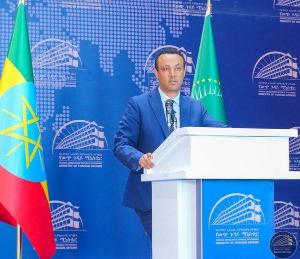
.jpg)
.jpg)

.jpg)

.jpg)


.jpg)
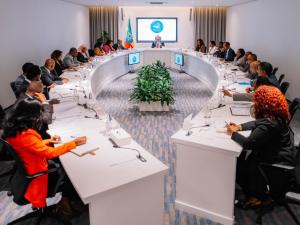

.jpg)
.jpg)
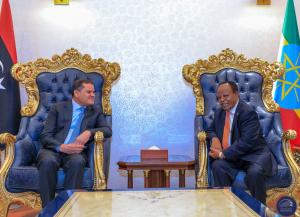
.jpg)
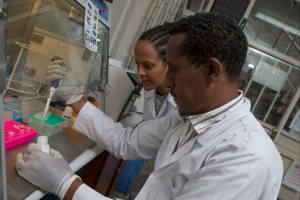
.png)

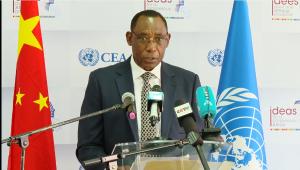
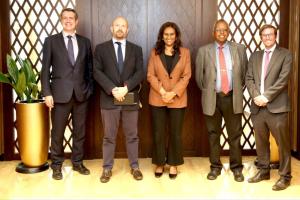

.jpg)
.jpg)
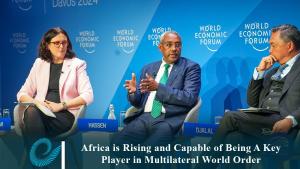
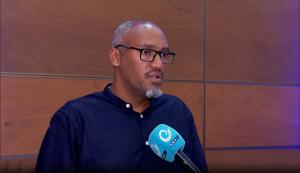


.jpg)


.jpg)


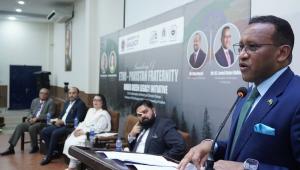
.jpg)
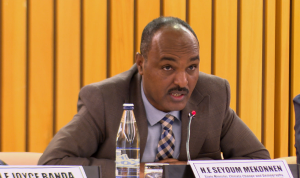
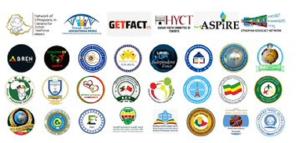


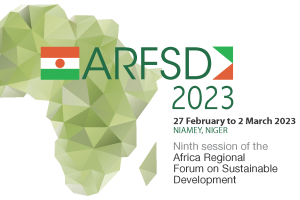
.jpg)